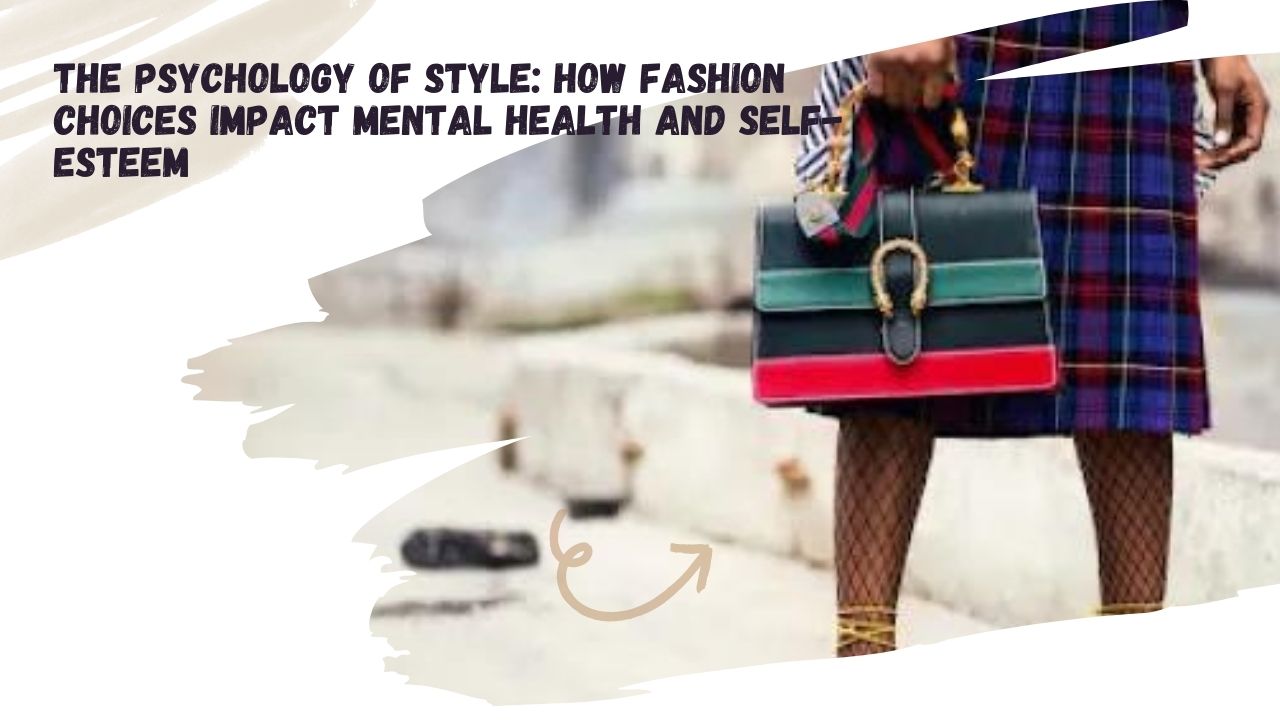Fashion is not merely about appearances; it has the power to shape our inner world, affecting how we feel, think, and even how we view ourselves. Understanding the psychological effects of fashion can provide deeper insights into our daily fashion choices and their influence on mental health and self-esteem. This comprehensive guide delves into the link between fashion, psychology, and well-being, offering expert opinions, practical tips, and a thoughtful exploration of self-expression through style.
The Connection Between Fashion and Mental Health
Fashion is deeply intertwined with our mental state. The clothes we wear reflect not only our personality but also influence our emotions and self-perception. Below are the key ways fashion can impact mental health:
- Self-Expression: Fashion is a powerful medium for expressing individuality and creativity. Wearing outfits that resonate with who we are enhances our authenticity, which can boost confidence and self-esteem.
- Mood Enhancement: Studies have shown that colors, textures, and clothing styles directly affect mood. Bright and bold colors, like red and yellow, often evoke feelings of happiness and energy, while neutral tones like blue and green provide calmness.
- Social Perception: How we present ourselves through fashion impacts the way others perceive us. Positive social interactions often occur when we dress well, which in turn can improve self-esteem and contribute to a sense of belonging.
The Psychological Impact of Clothing Choices
Fashion psychologists have studied the deep connection between what we wear and how we feel. Here are some psychological theories that explain the relationship between fashion choices and mental health:
- Enclothed Cognition: This theory suggests that the clothes we wear can influence our cognitive processes, including our thoughts and feelings. For example, wearing formal attire can lead to feelings of empowerment and professionalism, while casual wear promotes relaxation.
- Symbolic Self-Completion: According to this theory, fashion is used as a tool for self-representation. People may dress in ways that align with an aspirational identity, thus influencing their self-image and mental health.
Expert Insights on Fashion and Mental Health
To understand the profound connection between fashion and mental well-being, we reached out to professionals in both fields. Here’s what they shared:
Dr. Emily Roberts, Psychologist:
“Fashion plays a critical role in shaping our mental health. Wearing clothes that align with your personality can elevate your self-esteem and create a positive mindset. What you wear can affect not only how you see yourself but how others perceive you as well.”
Sarah Johnson, Fashion Stylist:
“Your wardrobe is an extension of self-care. When you take the time to wear something that makes you feel confident and happy, it sends a signal of self-respect. It’s about finding your unique style, not just following trends.”
How to Use Fashion to Boost Mental Health and Self-Esteem
Adopting a mindful approach to fashion can enhance mental well-being. Here are some actionable tips to guide your fashion choices:
- Dress for Yourself: Wear clothes that make you feel good, regardless of societal pressures or current trends. This sense of ownership over your style boosts confidence.
- Experiment with Colors: Introduce colors that positively affect your mood. Yellow promotes happiness, while blue and green bring calmness.
- Comfort is Key: Feeling physically comfortable translates to feeling mentally at ease. Opt for clothing that prioritizes comfort, allowing you to move and breathe easily.
- Wardrobe Declutter: A cluttered wardrobe can create stress. Organize your closet to include only clothes that fit well and bring joy.
- Mindful Shopping: Avoid impulse buying. Focus on quality pieces that you truly love and will wear often, reinforcing a positive relationship with your wardrobe.
Case Study: The Role of Fashion in Building Confidence
In one study conducted at the University of Hertfordshire, researchers found that individuals who dressed more formally felt a higher level of self-control and confidence during challenging tasks, such as public speaking. This supports the idea that fashion choices directly affect cognitive and emotional experiences.
Frequently Asked Questions (FAQs)
1. How can fashion boost self-esteem?
Fashion enhances self-esteem by allowing individuals to express their identity, creativity, and personality. Wearing outfits that align with personal preferences can make you feel more authentic and confident in your interactions.
2. Does color psychology apply to fashion choices?
Yes, color psychology plays a significant role in fashion. For example, wearing bright, bold colors can uplift your mood, while softer tones may have a calming effect. Experimenting with different colors can influence how you feel throughout the day.
3. Can dressing well improve mental health?
Dressing well contributes to mental health by improving social interactions, increasing feelings of self-worth, and providing a sense of control. When we feel good in what we wear, our mindset naturally follows suit.
4. How do fashion trends affect mental health?
Fashion trends can have both positive and negative effects on mental health. While some people enjoy following trends as a form of self-expression, others may feel pressured to conform. It’s important to prioritize personal comfort and style over trends to maintain a healthy mental outlook.
5. What’s the connection between fashion and social anxiety?
Fashion can either alleviate or exacerbate social anxiety. Wearing clothes that make you feel confident can reduce anxiety in social settings, while discomfort with your outfit may increase feelings of self-consciousness.
Conclusion
Fashion is a tool for both self-expression and mental well-being. By making conscious fashion choices—whether through colors, styles, or fit—we can positively influence our mental health and self-esteem. It’s important to remember that the best fashion choices are those that make you feel good, reflect your unique personality, and align with your comfort. Your style is a form of self-care; embrace it, and let it boost your confidence.
